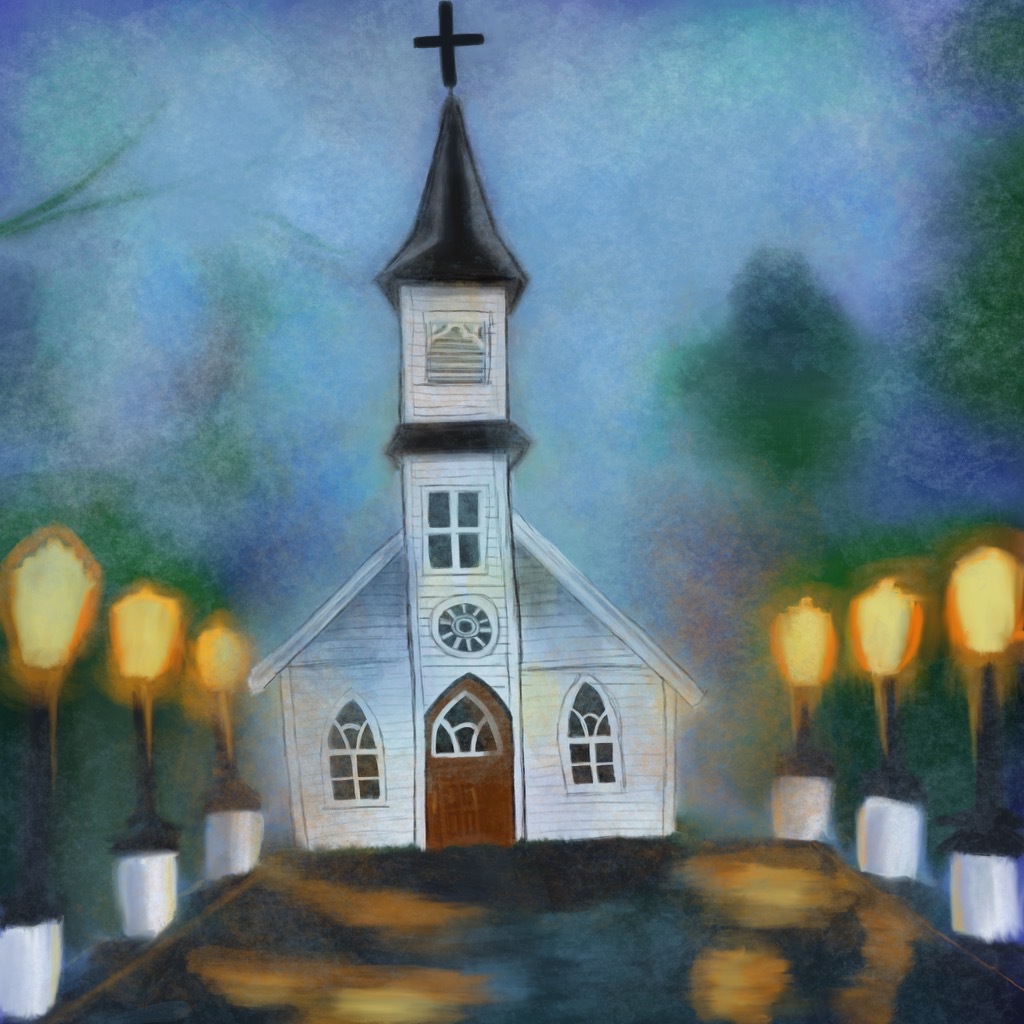Illustrated by Paheli (She/Her)
Content warning: homophobia, transphobia, religious language, mentions of depression and suicide
Title IX protects against sex-based discrimination. Beginning with Bostock v. Clayton County, the Supreme Court ruled that Title IX’s protection extends to transgender and gay individuals — but because the U.S. government grants religious exemptions from Title IX compliance, this protection is conditional.
Essentially, religious institutions, regardless of whether or not they receive federal funding, can legally discriminate against LGBTQ+ individuals. U.S. courts continually rule in favor of religious freedom and deny queer people legal protection under Title IX. In fact, a recent 2021 case, Hunter v. U.S. Department of Education, follows this disheartening precedent. When queer students at religious colleges face horrors like conversion therapy, the government repeatedly denies them protection.
Before UCLA, I attended Andrews University, a private Christian college in rural Michigan. Andrews University is the flagship school of the Seventh-day Adventist church — a Christian fundamentalist denomination, which, like many of its equivalents, believes homosexuality is a sin.
The question I and many other queer people with conservative Christian backgrounds often receive is, “Why don’t you just leave?” Unfortunately, the church makes leaving incredibly difficult.
I’m privileged to have been able to withdraw from my previous university, but many aren’t so lucky. Seventh-day Adventist colleges frequently offer potential students hefty scholarships. If you have a high SAT score and good grades, it’s likely you’ll receive a full tuition scholarship. Furthermore, Christian parents are often adamant about sending their financially dependent children to a religious college.
Even disregarding financial or parental pressures, abandoning my lifelong community and worldview was a terrifying step to take. I grew up in the Seventh-day Adventist church. From my Christian high school to my Christian friends and family, I had minimal contact with people outside of my church. Nearly everyone I knew and everything I’d been taught about the world stemmed from the Adventist church, and by college, I’d absorbed 18 years worth of their beliefs.
Insidiously, the church instilled in me the false idea that existence is fraught with suffering. Everyone struggles with sin, they said, and for gay people, the solution was simply to repress the “gay part” of you forever.
Oppressive environments encourage queer people to repress their identities. After all, it’s daunting to look inwards and acknowledge your queerness after listening to the church condemn it as sinful and monstrous. More often than not, queer people repress the possibility that we might be different for as long as possible.
The blatant dehumanization of queer people is common and deeply ingrained in conservative Christian environments. I remember girls threatening to hide in the locker rooms from the one lesbian who came out in high school. Student government leaders called trans people “freaks” and “monsters” during weekly meetings, and faculty sponsors did nothing in response. In college, one guest lecturer was a lawyer actively fighting against the removal of Title IX’s religious exemption. In classes, professors openly condemned homosexuality as immoral. The official student handbook banned, I quote, “romantic behaviors between individuals of the same sex.” And the campus church’s pastor told a bisexual eleven-year-old girl that she would go to Hell for her “lifestyle” in front of the whole congregation.
As a result, for much of my life, I ignored my queerness and left it to fester in the dark. I thought, I am not bad, so I cannot be that. I won’t be.
It’s hard to recognize queer discrimination when you cannot even acknowledge your identity. It’s harder still to believe things can be better when everything you know reinforces the idea that all you deserve is suffering.
Still, repressing an intrinsic part of your existence never lasts long. Without a path out, the combination of oppression and repression in conservative Christian environments leads many queer people to depression and suicide.
While at Andrews University, I knew something had to change.
My friends and I attempted to raise awareness on the Andrews campus about the church’s dehumanizing abuse towards queer people. We gathered and distributed quotes from queer people speaking on their deteriorating mental health and the crushing isolation of queerness in the church. We wrote to the university administration, urging them to remove the ban on same-sex relationships in the student handbook.
Ultimately, the administration did not remove the homophobic clause from the handbook. Appealing to the humanity of these religious institutional leaders did not enact change.
We need laws to protect us. Title IX shouldn’t have a religious exemption. Religious freedom shouldn’t allow institutions to disregard queer people’s humanity and safety. Certainly, for some queer people, leaving the church is a possible solution, but for those without a choice, we as a community must advocate for their legislative protection.
Credits:
Author: Rainer Lee (He/Him)
Artist: Paheli (She/Her)
Copy Editors: Min Kim (They/Them), Bella (She/They)

